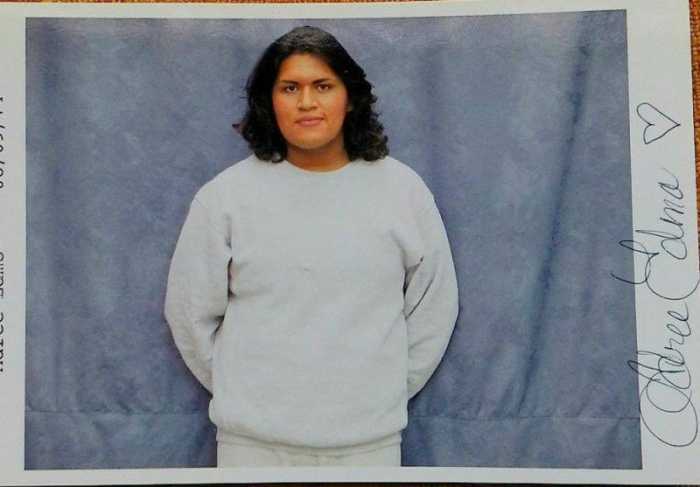BY ARTHUR S. LEONARD | In a gutsy move, US District Judge Aleta A. Trauger has rejected a request by Tennessee Republican Governor Bill Haslam to stay her order that the state recognize the out-of-state same-sex marriages of three Tennessee couples while Haslam pursues an appeal.
The Sixth Circuit Court of Appeals –– which already has an appeal pending from a pro-marriage equality decision in Ohio and will soon be getting appeals regarding wins in Kentucky and Michigan –– would hear Tennessee’s appeal.
Trauger issued a short opinion on March 20 explaining her decision to deny a stay.
Federal judge sees no harm to Tennessee in recognizing three same-sex marriages immediately, even with appeal underway
On March 14, Trauger ruled that the three plaintiff couples had shown they were likely to succeed on the merits of their claim that the state’s refusal to recognize their marriages violates the US Constitution’s 14th Amendment. Without engaging in any extended constitutional analysis in her more recent opinion, Trauger pointed out that since Edie Windsor’s victory in her challenge to the Defense of Marriage Act last June, federal “courts have uniformly found that bans on the consummation and/ or recognition of same-sex marriages are unconstitutional,” even under the most lenient standard of judicial review, and that she saw no reason why Tennessee’s refusal to recognize valid out-of-state marriages would “merit different treatment under the United States Constitution.”
Trauger also sharply disputed Haslam’s contention that staying the decision would not cause irreparable harm to the plaintiffs, and she emphasized the narrow scope of her preliminary injunction, which orders the state to recognize only the same-sex marriages of three couples. Any harm to the state by complying with her order while its appeal goes forward “would not be substantial,” she wrote, “and that harm is unlikely to occur in the first place, because the plaintiffs are likely to succeed.”
She also wasn’t convinced by the argument that the “affront” to the “sovereignty” of Tennessee from her order outweighs harm to the plaintiffs, especially the couple expecting a newborn child and a second couple who are raising two children together.
Trauger noted that district court marriage equality rulings in other states all involve statewide relief, which in Utah led to more than 1,000 marriages before the US Supreme Court stayed the lower court order several weeks later. Haslam, she found, failed to show that anybody else would be injured by enforcement of her order. She asserted that “preserving the status quo” pending appeal was not a good enough argument where a plaintiff’s constitutional rights are at stake.
How the Sixth Circuit or the Supreme Court might view the distinction Trauger made between the narrowness of her ruling and the Utah decision that the high court stayed is the most immediate question on the table.
Attorney General Ellen Rosenblum. | ELLENROSENBLUM.COM
Meanwhile, a new same-sex marriage drama is playing out in Oregon as a result of a brief that Attorney General Ellen Rosenblum filed on March 18 with US District Judge Michael McShane, who is presiding over litigation there. The attorney general’s brief argues that the ban on same-sex marriage is unconstitutional and says the state is ready to start issuing marriage licenses if the court rules that way after it hears the plaintiffs’ arguments for summary judgment on April 23.
Neither Democratic Governor John Kitzhaber nor the other named defendants in that case have indicated any interest in appealing such a ruling, and so far no one has petitioned the court to intervene to defend the marriage ban.
So far, nobody has stepped up to defend Oregon's gay marriage ban
The Oregonian newspaper reported on March 19 that some county clerks have discussed intervening as defendants, but so far none has taken that step. McShane, an out gay man appointed to the bench by President Barack Obama last year, would have to approve any intervenors in the case.
McShane is faced with an interesting set of choices. He could rule promptly after the April 23 hearing, rendering a decision similar to the nine consecutive pro-same-sex marriage decisions issued by federal district courts since last year’s Supreme Court ruling on the Defense of Marriage Act and make it effective immediately. A key question then would be whether any party would be situated to appeal.
Or, he could rule on the merits for the plaintiffs, but stay his order pending the Ninth Circuit’s ruling in the Nevada marriage equality case.
If he wished to be even more cautious –– if, for example, his status as an out gay man and a relatively new judge on the federal bench predisposes him out of political considerations to avoid stepping out front on the question –– he could hear arguments on April 23 and then wait until the Ninth Circuit rules before finalizing his opinion.
The Ninth Circuit, which originally scheduled oral arguments in the Nevada case for April 9 but then canceled the date given the deluge of amicus briefs filed on both sides of the question, has not rescheduled. It seems likely, though, that it won’t be long until the circuit takes up Nevada, as other circuits are moving expeditiously on gay marriage appeals, especially regarding Virginia, Utah, and Oklahoma.


































